
I can’t recall a book on higher education that arrived with so much buzz, and drew so much commentary in the first two days after publication. The book is Academically Adrift: Limited Learning on College Campuses, by Richard Arum, and Josipa Roksa (University of Chicago Press). Arum is a professor of sociology and education at […]
Read More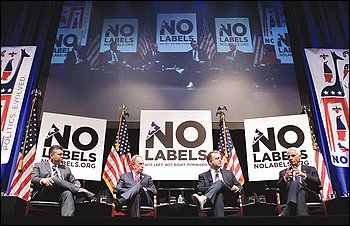
What a different scene at Columbia University in the last month of 2010 from the glory days of the 1960s, when student radicals took over the campus! On December 13th, mild-mannered students with pleasant smiles nodded in agreement with establishment politicians and political strategists at the “No Labels” conference. As political analysts have pointed out, […]
Read More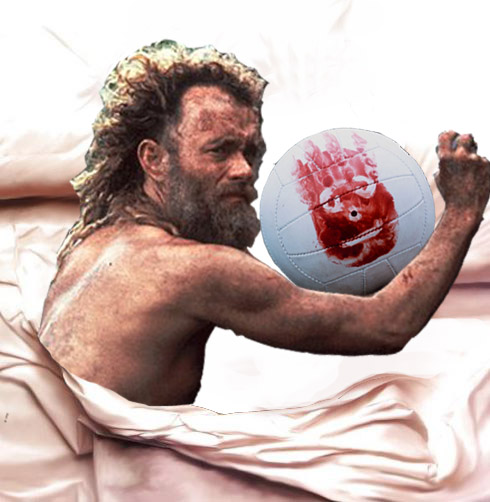
One consistent challenge in teaching is remembering how little students really know and how much they think they know. This is not a putdown of students. On the contrary, it is a celebration of optimism in the best sense of the word, the same optimism that was supposed to have inspired Winston Churchill to observe: […]
Read More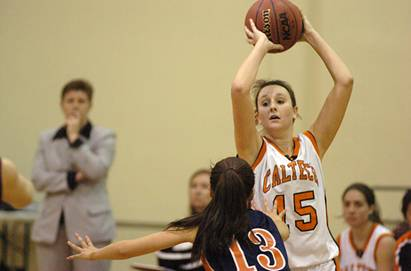
Older readers know how the leading American universities, which had risen to world-class status by the 1930s and 1940s, were upended by the traumatic campus events of the late 1960s and their aftermath. Riots and boycotts by student radicals, the decline in core curriculum requirements, the loss of nerve by university presidents and administrators, galloping […]
Read More
One of my professors in college defined an anthropologist as “a sociologist in a tent.” His comment was not a compliment — he was a sociologist — but it was true in ways that he did not have in mind. Anthropology has always been a big tent, including as it does what one anthropologist calls […]
Read More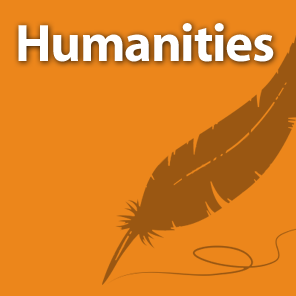
College foreign language and literature programs have been in decline for some time, first shrinking, then being consolidated with other departments, and now in a growing number of cases actually closed down. But the recent decision to eliminate French, Italian, Russian and Classics at SUNY Albany appears to have struck a nerve, and caused an […]
Read More
Michelle Kamhi is the co-editor of the online arts review Aristos, and a mild-mannered, well-spoken New Yorker with a love of art and intellectual integrity. She is also the cause of a heated controversy that has broken out in the world of art education. The source of this conflict is an op-ed Kamhi wrote in […]
Read More
Matthew J. Connelly, a historian at Columbia, is busy preparing for a second summer of scholarly doom. Last May, he presided over “Nuclear Summer,” an intensive 12-week course of study, research and collaborative writing about coping with nuclear proliferation and various nuclear scenarios. Next week, he is scheduled to announce that his 2011 summer course, […]
Read More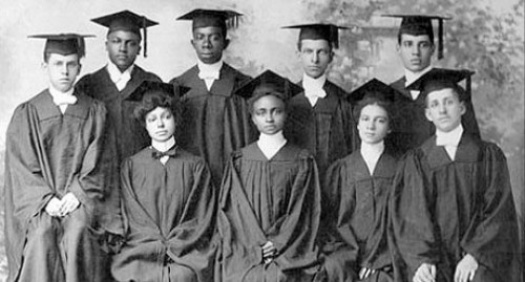
Should all-black colleges exist in 2010? No, some say. After all, it’s been almost fifty years since segregation was outlawed in America. And most Historically Black Colleges and Universities (HBCUs) are of also-ran status, doing their best, but hardly the bastions of excellence that so many were in the old days. Graduation rates are low […]
Read More
Radical Math held its third annual conference in New York last weekend. Four hundred high school math teachers and education professors attended the conference on “Creating Balance in an Unjust World: Math Education and Social Justice.” At thirty-two workshops on Long Island University’s Brooklyn campus and in half a dozen city public schools, math teachers […]
Read More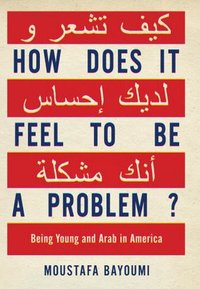
How Does It Feel to Be a Problem? Being Young and Arab in America—the controversial book assigned for freshman reading at Brooklyn College—is, in my opinion, an important but seriously flawed work, and one that should be read, but not as a sole required text for incoming English students. In the book Brooklyn College English […]
Read More
I hesitate to criticize sociology or sociologists. After all I am now at nearly a lifetime in the discipline, which I have taught for more than thirty years. But I would be dishonest if I did not acknowledge that throughout that time I have been a dissident in the field, a role, protected by tenure, […]
Read More
The news circulating among humanities professors across the country is the decision by SUNY-Albany to close programs in Classics, French, Italian, Russian, and Theatre. (Judaic Studies, too, has been virtually eliminated and journalism will be cut in half.) The general dismay is palpable, but faculty members should prepare for more of the same in the […]
Read More
About this time of year, faculty members seek relief from their stressful campus existence by flocking to such fun-filled destinations as Orlando and Las Vegas for their annual professional conferences. However, these workaholics never are far removed from their sociopolitical agendas, which are available for the world to see in workshop descriptions laid out in […]
Read More
This paper was prepared for yesterday’s conference on “Capitalism on Campus: What Are Students Learning? What Should They Know?” The one-day event in New York City was sponsored by the Manhattan Institute’s Center for the American University. Charlotte Allen, who writes frequently (and exceptionally well) for Minding the Campus, is preparing a report for us […]
Read More
Mark C. Taylor’s Crisis on Campus: A Bold Plan for Reforming Our Colleges and Universities (Knopf) is neither as bold nor as innovative as he would like us to believe. What purports “to begin a national conversation about transforming our institutions of higher learning” merely continues the postmodern assault on higher learning that began in […]
Read More
Harvard President Drew Faust probably didn’t expect criticism when she said she looked forward to reinstating the Reserve Officer Training Corps once the military’s “don’t ask, don’t tell” policy is ended. But Senator Scott Brown, the Massachusetts Republican and a lieutenant colonel in the state’s National Guard, said he couldn’t understand Harvard’s priorities: how could […]
Read More
Here is a new trend: college for people who can’t read or write. And no, that doesn’t mean the one out of three freshmen whose literacy and numeracy skills are so poor that they have to take remedial courses before they are deemed ready to do college-level work. It means students who literally can’t read […]
Read More
A mesmerizing phrase regularly rolls off the tongues of education experts these days. Secretary of Education Arne Duncan used it in a recent speech to the National Conference of State Legislators, saying that Common Core’s new standards will try to make certain that high school graduates are truly “college- and career-ready.” Sounds impressive, but he […]
Read More
In The Weekly Standard, James Seaton has a review of the new edition of The Norton Anthology of Theory and Criticism that illuminates a basic mistake the discipline of literary studies committed many years ago. Here is the second paragraph of Seaton’s review: Despite its length, the new NATC is most revealing in its omissions, […]
Read More
Dear Assistant Professor: Congratulations on your new job! Whether you’re a visiting professor or on the tenure-track, consider yourself among of the lucky. As someone who ran the academic treadmill for eight years—I taught at a community college, at two four-year liberal arts colleges, and at a state university until I landed a permanent position […]
Read More
In his recent speech at the University of Texas in Austin, President Obama expressed deep unhappiness that the United States is no longer the country with the highest percentage of college graduates in the 25 to 34 age bracket. By 2020 he wants us to regain the top position we enjoyed ten years ago before […]
Read More
ACTA’s new, expanded survey of college general education requirements has earned justified praise. Here’s Pulitzer Prize winner Kathleen Parker, from her column this Sunday: “The study and Web site do fill a gap so that parents and students can make better choices. As a consequence, colleges and universities may be forced to examine their own […]
Read More
Only a federal bureaucrat could come up with an oxymoron this laughable: “Feasibility of Including a Volunteer Requirement for Receipt of Federal Education Tax Credits.” A “volunteer requirement”? Come again? But that’s what the Treasury Department said in a call for comments issued this spring on the idea of making community service–volunteer work for charity–mandatory […]
Read More
By Stefan Kanfer In full-page newspaper ads, the Kindle displays the first page of an e-book. Its opening is famous: “I am an invisible man.” Or is it famous anymore? How many high school seniors—or for that matter college undergraduates—can identify Ralph Ellison’s novel? True, the author was an African-American, but he was a male […]
Read More
This is the slightly edited introduction to the author’s new collection of essays, Decline and Revival in Higher Education ( Transaction Publishers ). Dr. London is president of the Hudson Institute, one of the founders of the National Association of Scholars, and the former John M. Olin Professor of the Humanities at New York University. […]
Read More
My last post looked at the latest troubling educational initiative from the Association of American Colleges & Universities (AAC&U). The organization is especially pernicious not simply because of its agenda—which is, after all, quite mainstream in the contemporary academy. What distinguishes the AAC&U is its contempt toward students at non-elite schools, its belief that such […]
Read More
Few higher education groups have as pernicious an agenda as the Association of American Colleges and Universities (AAC&U). The diversity-obsessed organization combines an unrelenting campaign against quality—especially at schools whose student bodies are more middle- or working-class—with an Orwellian tendency to use words to describe their opposite. Beyond this pattern, AAC&U initiatives tend to have […]
Read More
Almost every morning, after taking a shower, I get on the scale to see if I have lost some of the extra weight that I do not want or need. I have tried many ways of shedding the pounds, with diet and exercise at the top of the list. The pounds refuse to disappear. After […]
Read More